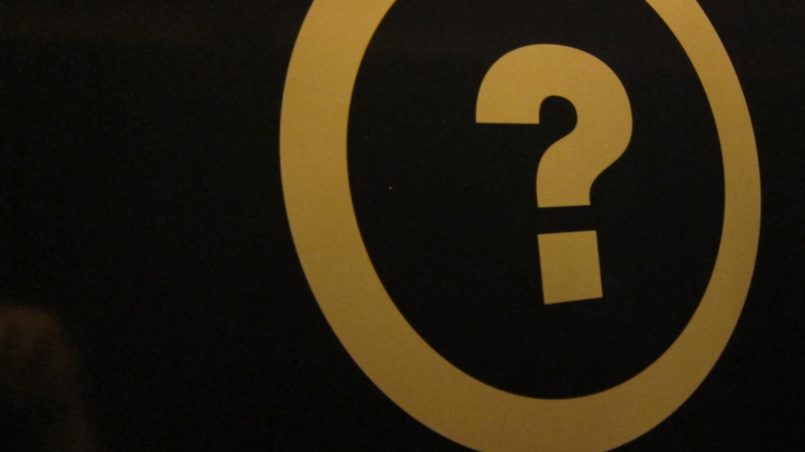“Woran glauben (What to Believe in)” – Rudolf Taschner introduces his New Book

Event data
- Datum
- 24. 1. 2017
- Host
- Österreichische Kulturvereinigung
- Location
- Saal der Kulturvereinigung
- Event-type
- Vortrag
- Participants
- Rudolf Taschner, Mathematiker, Autor
Rudolf Taschner, mathematician and author, presented his latest book: “What to believe in – 10 offers for enlightened people”.
Data has a half-life, but not knowledge; mathematicians today still have old knowledge, we are the sustainable ones. When mathematicians come to know something, it is there to stay.
The multiplication of knowledge has, in a sense, led to a flattening of what is thought to be really important. As an example, Taschner refers to the Nobel Prize laureates. In the past, the Nobel Prize was something special. Everyone knew who had been awarded a Nobel Prize, and the names are still known today. But today one is no longer aware of who received a Nobel Prize after a month, let alone what for.
What do we really know?
6 X 7 = 42, is something we all know, this is simply quite certain. With other mathematical facts, such as the sentence: “There is an infinite number of prime numbers!“, you have to look more closely, because you cannot just lift a veil and say “Look! There you have it – an endless array of prime numbers. “There is not even a simple law on how to count the prime numbers in order. So then what does this mean: There is an infinite number of prime numbers? It is a truth that is valid forever, but what can I do with this eternal truth? Does it help me in life? Taschner’s answer is clear: “No, it does not.”
Ultimately, one arrives at the conclusion that what touches my existence does not have all that much to do with knowledge, but rather enters into the realm of faith.
What is the difference between knowledge and faith?
Frequently, faith is treated as though it were the atrium to knowledge, when really it is the other way around, according to Taschner. The great German philosopher, Karl Jaspers, wrote an essay on the philosophical faith, describing the difference between faith and knowledge, using two famous people as an examply: Giordano Bruno and Galileo Galilei.
Both came before the Inquisition Court.
Bruno claimed that the universe is infinitely great. The stars you see are really suns, as bright as our own, but so far away that they cannot be recognized as suns. The whole universe is animated, there is no beginning and no end. As a consequence, there would be no outside, so that there was no place for an external God to reside, but rather he was to be found inside. Upon announcing this, he was brought before the Inquisition Court.
Galileo claimed that the sun is not a perfect sphere, it has spots, the moon has mountains, Jupiter has its own moons, and Venus shows phases like the moon. He said the earth was moving around the sun, thus revealing himself to be a follower of Copernicus. But Galileo published all this in Italian, the language of the people, and so he too was brought before the Inquisition court.
Before the court of justice, Galileo now rejected his allegations, as was required of him. But why did he recant?
But Bruno did not withdraw his statements. For he believed. He could not prove that there is no God, that the universe is animated, etc. Consequently he was burnt at the stake. He died for this faith. If he had revoked his claims, his faith would have been murdered.
Faith is much stronger than knowledge.
In the following, Taschner presents ten different beliefs:
Superstition
Those who claim to be disbelievers are sometimes very superstitious. Superstitions are very common, even if one does not admit it. When playing the lottery, for instance, everybody prefers certain numbers.
The origin of the number 13 as an unlucky number is not completely known. The fact is, however, that the number 13 is the first composite number (3 + 10). In Italy it is the number 17, because in Roman numerals 17 = XVII, which can be transformed to the term VIXI, meaning “I have lived, my life is over“.
In China, the number 8 is revered as the number of money, while the number 4 is associated with death. Even the church is enormously superstitious.
The faith in nature
Taschner refers to the concept of nature as mother: Mother Nature – Mother Earth. We are deeply impressed by nature, we almost personalize it. Nature does not tell us what is good, though. It also does not answer our questions, such as: “When does a human life begin?” It does not even tell us what man is.
And what about those about whom one might say “Life did not treat them kindly“? If judged according to nature’s ways, it means nothing more than “survival of the fittest” – Darwin‘s laws. And that can be very dangerous.
The faith in history
The prime example of this belief are the Presidents whose faces are engraved in Mount Rushmore (George Washington, Thomas Jefferson, Theodore Roosevelt, and Abraham Lincoln). They are carved for eternity, bearing witness to the attempt to leave some kind of footprint in history.
The belief in enjoyment
Taschner names the example of the compulsive gambler who does not enjoy the game, but only the brief moments in which he says: “Now I am lucky!” The bad luck is overlooked. He refers to the ascetic, who delays enjoyment and who gets pleasure from this delay.
The art of enjoying in style is totally lost to us, nobody can do this anymore. People slurp, but they can no longer sip, people wolf down, but they can not sample, people copulate, but they can no longer flirt, this is all lost – the ability to really enjoy.
Faith in the future
Believing in the future is a very important belief. Here Taschner presents the thesis that Christmas is not a truly Christian celebration, but rather a festival of the future, for we celebrate the child – and with him the future.
Concerning the unconditional basic income, which could come in the future, Taschner expresses criticism:
If we no longer worked, how would we feel about ourselves? Completely superfluous! And this is the most disastrous thing for a human being. Representatives of the unconditional basic income do not know how eager man is to give shape to something.
He also notes that the whole system is not well thought out, because what happens to people who just gamble away money and still have to get by? Or would the basic income, which is intended to give freedom, be paid out for specific purposes, thus with restrictions as to how it may be used?
Taschner does not recommend this future, but rather the design future.
Faith in the Church
Concerning this chapter, Taschner does not go into more detail, he only notes:
If it did not exist, I would be sad, but I want to chafe up against it a little, I’m a bit torn in that respect.
The belief in art
The belief in art goes into the transcendent, a true work of art is unfathomable. There are the weak works of art that can be called paintings. And there are great works of art.
Sometimes what was desired was no more than a picture, and not a work of art, as with the monks in Santa Maria delle Grazie. They were looking for a painter who could do the image of the Lord’s Supper. They came upon Leonardo da Vinci, who created a work of art and needed much more time than the monks had planned for this work.
The parallels of an image meet in the vanishing point, which in itself lies in the infinite. Remarkable about da Vinci’s painting is that the vanishing point is in the temple of the Savior.
Faith in God
Here, Taschner names the proximity and remoteness of God, that is, the presumed presence of God in good events and the question of his absence in the face of catastrophes. Atheism – the conviction that God does not exist – is easier to bear than divine remoteness.
Faith in the ego
It is a fundamental faith to believe in oneself. Descartes said, “If everything is doubtful, I cannot doubt one thing, and that is that I doubt, that is certain.” He also said, “Before I believe in God, I believe in myself.”
Putting faith in oneself before faith in God is the most important factor here. It is the belief that you can take your destiny into your own hands without blaming anyone or anything else.
Even St. Augustine said: “Dubito, ergo existo!” (I doubt, therefore I am!)
Faith in you
The belief in you is enormously important, because if the self is alone, it is quite lonely, and being lonely is much more terrible than having to die.
The dialogic principle of Martin Buber comes from the Bible, because God concluded on Wednesday that not everything was good – and that is the point where God realized that man was alone and lonely.
Concluding reflections with the audience
Is there a transition between faith and knowledge and thus a possibility that these two meet and, if so, where?
There is something like a conviction of mine. I have good reasons to be convinced, but there is no definite proof. These beliefs, however, are very subjective, they are compatible with the knowledge I have, and I can also communicate them. But it is my conviction, my world.
Translation from German: Serena Nebo
Credits
| Image | Title | Author | License |
|---|---|---|---|
 |
Question | Ryan Milani | CC BY 2.0 |
